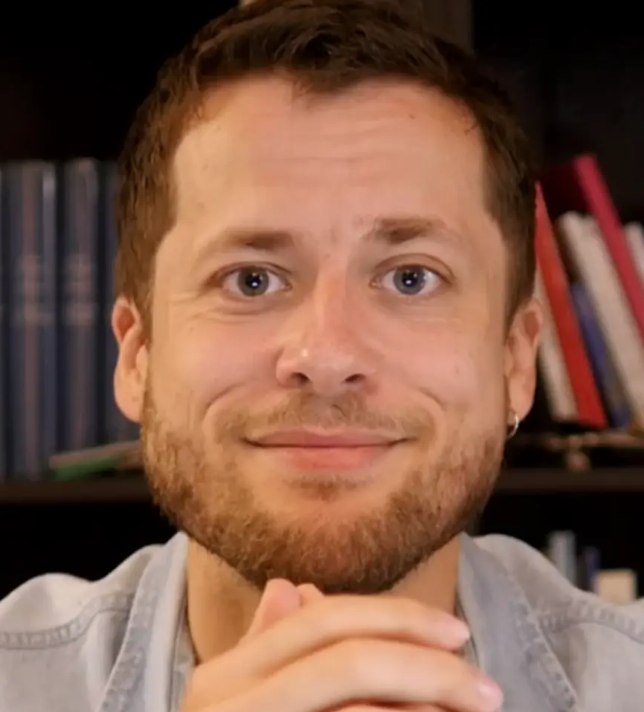Marc Altorffer is a hypnotherapist in West London and online
What attracted you to become a therapist?
I was a banker for 10 years and I quit because it wasn't fulfilling. After a little while trying everything, I remembered my dream job of when I was 20 years old, being a therapist and helping people to overcome their issues.
Coincidently at the same time my best friend was starting hypnotherapist training in France, I tagged along and that's where it all started.
Where did you train?
I trained in Ericksonian hypnotherapy in France first with the ICFHE Institut Centre France d'Hypnose Ericksonienne and then cognitive behavioural hypnotherapy CBH in London in the UKCHH UK College of Hypnosis and Hypnotherapy .
Can you tell us about the type of therapy you practise?
I practice CBH, cognitive and behavioural hypnotherapy and Ericksonian hypnotherapy. They complete each other in a way, in the sense that the first one is very direct and structured and the second indirect and instinctive.
CBH is a three-dimensional and evidenced-based model that works on a person's thoughts, behaviours and emotions. It uses hypnosis and cognitive behavioural techniques. It engages the client in the therapeutic process by giving them tasks and techniques during and outside the sessions.
Ericksonian hypnosis is a conversational, indirect and subtle approach that uses images and metaphors when the client is under hypnosis but not only , modifying their approach to an issue sometime without them noticing.
What can hypnotherapy help with?
Stress, anxiety, phobias, panic attacks, depression, insomnia, personal or interpersonal relationships, pain or chronic pain, to get rid of habits such as smoking, nail biting etc.
I work with all kinds of challenges but at the moment it is mainly with anxiety-related issues.
What sort of people do you usually see?
I see individual clients, often by Zoom. But I can't pinpoint a type really. I have all sorts of clients, women or men, from teenagers to 60 years old.
My clients often come to me for anxiety, self-confidence issues, chronic pains or to stop unhealthy or harmful habits.
Have you noticed any recent mental health trends or wider changes in attitude?
Well, as expected with Covid, many clients are overwhelmed with anxiety. When you face a stressful situation, it can still impact you, even when the most acute crisis moment has passed.
With two successive lockdowns people were left on their own to face highly stressful situations without any new measures to help them cope with it.
At the moment the fear of being sick, without necessarily being sick, is everywhere and this obviously affects your life on many different levels: being among people in a social capacity, having to fulfil work requirements like public speaking for example, or just excessive worrying and feeling scared.
What do you like about being a therapist?
Two things in particular come to mind.
First, I love seeing my clients getting better during the therapy. It gives me a sense of purpose, and I feel useful.
Second, every client is different and even if the issue seems similar, their background makes them unique. So at the end it's like solving a different puzzle every time, it never bores me.
What is less pleasant?
Without a doubt the administration and advertising my services...
In the long-run you need to manage your physical and mental commitment. It is easy to let a client's situation affect your personal and professional life, and that should be avoided.
How long have you been with welldoing.org and what you think of us?
I have been with welldoing.org for a year now and it has been a good experience. The website is quite clear, the price and service quality are good as well, and I have had a few clients through the service.
Do you ever suggest books or apps to clients?
I don't. Mainly because I give tasks to do or recording to listen to outside the sessions which are already keeping them busy.
What you do for your own mental health?
Meditation, specific relaxation exercises and I practice yoga. I also have supervision with peers as a means of mental and professional support.
You are a therapist in Maida Vale, West London and online. What can you share with us about seeing clients in this area?
Nothing specific really, nowadays anxiety is the main topic clients come for. But there are also a lot of clients in their 30-50s who want to find a purposeful job or make a change in their life.
What's your consultation room like?
Two dark sea-blue walls and a window looking out onto a garden with little furniture: a sofa, a small table with a glass of water and tissues, my desk and a small library.
I want my client to be comfortable but also free to imagine whatever they want in the room.
What do you wish people knew about therapy?
Therapy is now seen as a treatment for mental issues. I wish it to be part of everyone's life not just as a treatment but as a regular practice to learn 'mental hygiene'.
I dream of people doing a quick 5-10min relaxation a day the same way they brush their teeth. Then people would learn how to maintain their mental health before it becomes an issue.
As for now this is what I try to do: when we work on an issue, I guide and teach my clients the skills to do it on their own. Once you master a skill, it stays with you and you can reuse and adapt it in other similar situations.
What did you learn about yourself in therapy?
I learnt to manage my emotions like anger and anxiety. I learnt about listening to others, being powerless and being OK with it this one is tough , how to start my life over.
The list is long, but you could say I learnt in therapy what I was unable to learn anywhere else.

